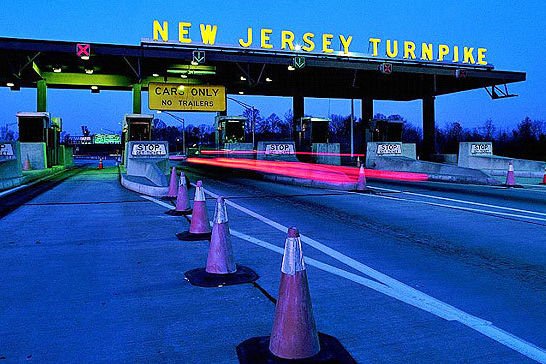
Taking greater satisfaction from your work may be your goal, but it seems that it’s hardly the government’s or the economy’s goal. Not so long ago it felt differently, that those goals were all more aligned—and maybe they could be again–but only if we gain a better understanding of how that alignment came about in the first place and the choices we can make in the workplace and at the ballot box to support it again.
Economist Edmund Phelps provides a powerful argument for how the American worker’s wellbeing and capitalism’s productivity became intertwined in his 2013 book Mass Flourishing: How Grassroots Innovation Created Jobs, Challenge, and Change. His aim in writing it (I think) was to remind us that there used to be more of an alliance between how good we felt about ourselves when we were working and the benefits that our good work produced in the economy at large.
Phelps makes several proposals to restore that sense of equilibrium. But in a wide-ranging argument that relies on history, philosophy and quantitative analysis, his primary objective seems to be an ethical one: to get us thinking about what is important about our work and how to advance those priorities in the choices we make about the quality of life we want to be working for.
When his book came out, Phelps (who teaches economics at Columbia) gave a lecture with the related title: “Mass Flourishing: How It Was Won, Then Largely Lost.” It summarized several of his book’s arguments in a highly accessible format. Most of the quotations below come from that lecture. It is only a few pages long and well worth your time to read it in full.
Phelps’ thesis is that modern American capitalism created a culture of innovation, which refers to each worker’s entrepreneurial mindset as well as to the broader economic and social benefits that mindset produced. For the individual worker, this culture fostered:
a spirit that views the prospect of unanticipated consequences that may come with voyaging into the unknown as a valued part of experience and not a drawback.
In other words, at the same time that an innovation culture produces economic growth, it also gives rise to the experience of human flourishing as workers become more powerful and capable both as explorers and creators of the new world where they’ll be living.
According to Phelps, it was the Industrial Revolution (around 1800) that ushered in a period of individual and countrywide thriving that continued in America through at least the 1960’s. It was an explosion of individual and economic energy that would not have been possible without the Enlightenment values that took root, particularly in America, during an overlapping historical period.
The impetus for high dynamism, my book argues, was the modern values arising in Jacques Barzun’s Modern Era – roughly from 1490 to 1940 – particularly the values we associate with individualism and vitalism. They include thinking for oneself, working for oneself, competing with others, overcoming obstacles, experimenting and making a mark. The courage to express one’s self by creating or exploring the unknown and the gumption to stand apart from community, family and friends are also modern values. The thesis is that these values stirred a desire to flourish; they shaped a modern conception of the life to aim for – the good life. A prevalence of these values in a nation tends to generate an economy that offers work gratifying those desires – an economy that delivers flourishing.
How these values changed individual workers and the economy around them may be Phelps’ central insight. The standard argument has been that capitalism or “free enterprise” merely took advantage of discoveries and innovations that had been produced by science. Phelps argues that competition between workers in order to prosper contributed at least as much to individual and economic advancement—that capitalism creates innovation instead of merely feeding upon it. For him, it is the Enlightenment values that we brought to work for more than a century and a half that made “the good life” possible.
As quoted in a Thanksgiving article from a few days ago, this is the vitality and ambition that Alexis de Tocqueville witnessed when he traveled across America in the 1830’s, with its grassroots “religious, moral, commercial and industrial associations” standing in for the nobility and bureaucracy that limited European progress. It is what Lincoln was talking about when he observed that in America, “every man can make himself,” as illustrated in a speech he gave in 1859:
The prudent, penniless beginner in the world labors for wages awhile, saves a surplus with which to buy tools or land for himself; then labors on his own account another while, and at length hires another new beginner to help him. This… is free labor — the just and generous, and prosperous system, which opens the way for all — gives hope to all, and energy, and progress, and improvement of condition to all.
But then says Phelps, starting around 1970 and extending into the present day, the values of “free labor” have been constrained or overtaken by other values. In the wake of the New Deal of the 1930’s and even more so of the Great Society of the 1960’s, “traditional” social values have increasingly challenged what used to be our “vigorously individualistic” ones, including the current preference for “solidarity, social protection and security.” Among other things, these society changing priorities gave rise to “a vast canvas of entitlements… [and] to thickets of regulation” that impeded and sometimes overwhelmed the culture of innovation.
Instead of driving an economy that championed a good life from the ground up for individual workers, American policymakers began to manage the economy from the top down so that it would be what they conceived of as good for everyone. For Phelps, the satisfaction that came from realizing yourself through your talents at work along with the explosion of productivity that accompanied it in the economy—a century and a half of “mass flourishing”—was increasingly constrained by the parallel pursuit of other, well-meaning priorities. We tried to do two things at once, with a number of unintended consequences.
For one thing, the personal pride and psychic reward that were yours when you seized the opportunity “to make yourself” through your work were replaced by the promise of material wellbeing. Realizing your potential and learning new things about yourself while you overcame challenges in the rough and tumble working world were increasingly exchanged for the security of income and savings and for your leisure time away from work. According to Phelps, this trade-off no longer serves the individual worker’s “non-material experience” at all, draining work of everything that had once made it so satisfying.
These [recent] formulations overlook the world of creation, exploration and personal growth. Gone is the conception of the good life as a wild ride through an economy with an open future, an economy offering challenges with unimagined rewards. In this climate, young people are not likely to grow up conceiving the good life as a life of Kierkegaardian mystery, Nietzschean challenge and Bergsonian becoming.
(I know, pretty philosophical for an economist.)
Unfortunately as a result, work today has not only become the 8 hours you have to “get through” on your way to a paycheck and a week of vacation, but it also accounts for the startling pull-back of national productivity over the past 50 years. If we accept his thesis, “mass flourishing” has been replaced by widespread worker dissatisfaction, a decline in economic opportunity with few “haves” and many “have nots,” and an overall economy that seems to have run out of gas.
According to Phelps, the creative competition inherent in grassroots capitalism and the Enlightenment values that allowed it to thrive are essential to an innovation culture that brings prosperity at the same time that it makes work engaging. For him, Washington and the decision makers in other Western governments may believe that they can create more orderly and just societies by regulating, taxing and reducing economic growth, but by doing so they have nearly killed the golden goose.
When the values of the corporate state overtake the values of an innovation culture, the result is slower wage growth, reduced productivity in the economy, greater inequality among the nation’s stakeholders, less inclusiveness in promises like “the American Dream,” a sharp reduction in individual job satisfaction, and workers who have lots of stuff at the end of the day but little sense of personal meaning in their lives. One of the great virtues of Mass Flourishing is that it backs its arguments with the kinds of statistics that you’d expect from a Nobel Prize-winning economist like Phelps.

What Phelps does not provide are any statistics that quantify the loss of individual, work-related “meaning” over the past 50 years. But to me at least, his conclusion seems bolstered by the findings of a Gallop Poll that was taken around the same time that Phelps’ book came out. Its data proved the sorry state of worker engagement both here and elsewhere, as measured by an employee’s “psychological commitment” to his or her job as well as worker disengagement due to a “lack of motivation” and the disinclination “to invest discretionary effort in organizational goals or outcomes.”
Among North American workers, the Poll determined that 71% of the workforce was disengaged, while globally the level was an even more alarming 87%. Moreover, a substantial subset of checked-out workers was found to be “actively” disengaged. These individuals were not only “unhappy and unproductive,” but also “liable to spread [their] negativity to coworkers.” That all four corners of Phelps’ argument are evidence-based makes it particularly compelling food for thought.
As a result, his thesis challenges my sometimes belief (or is it arrogance?) that greater justice, equality, etc. can be achieved by enlightened government policies, even though experience tells me that there never seems to be a large or robust enough majority to produce real change. Does a tried-and-true system like Phelps “grassroots innovation,” with its mix of individual and system-wide incentives, have a better chance than well-meaning political agendas of producing “a good outcome” for both workers and the country’s economy?
Unfortunately, many of Phelps’ proposals for recovering what’s been lost seem impossible in today’s America. One of them still appeals to me however. It would mandate that members of Congress be people who have done more with their lives than practice law or connive in politics. Phelps’ proposes that all of our legislators be workers who have experienced competition first hand and, therefore, have been forced to innovate on the job. They would bring what they know about flourishing at work to Washington before returning, after term limits, to their highly productive lives.
Today, at the end of 2018, there is still grassroots innovation in America, and not just in the garages of Silicon Valley. When your work goals are in line with Enlightenment values like thinking for yourself, enjoying competition and overcoming obstacles, while experimenting, creating and exploring the unknown, you’ll find the opportunities for innovation at work. But these days, you may need to make a more deliberate effort to find them.
This post is adapted from my November 25, 2018 newsletter. Subscribe today.










